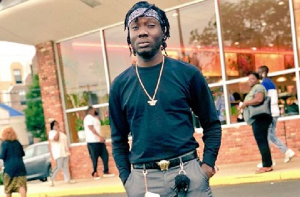Mental and epileptic patients in the Northern Region requiring medical care have shunned health facilities due to the absence of psychotropic medicines.
Epilepsy, per statistics from the Ghana Health Service, accounts for about 65 per cent of health cases reported at the various health facilities in the region.
According to the Northern Regional Mental Health Authority health facilities in the region have not received any consignment of psychotropic drugs and anti epileptic medicines for the treatment of epileptic and mentally ill patients.
Currently, the benevolent organisations have become the only source of psychotropic medicines in the region. The situation, the Authority says is denying most patients with mental instability the necessary medical care, especially those who are at various stages of recovery.
Director at the Authority, Mumuni Fuseini, said the challenge has resulted in a chunk of epileptic and mentally unstable patients shunning the facilities to access care for their recovery process. According to the authority the situation is widening the gap in mental healthcare delivery in the Northern Region as medicine plays a major role in treatment of the ailments.
Basic Needs Ghana, a non-governmental organization, is soliciting funds for psychotropic drugs to support mentally challenged and epileptic persons in the northern, upper east and upper west regions. The NGO, with support from Direct Relief Service and Johnson and Johnson, has donated some psychotropic medicines to the Mental Health Authority.
The Director of Basic Needs Ghana has called for an end to the stigmatization of mental and epileptic patients. The three regions of the north, before 2013, had no psychiatrist until Dr Ahmed Soori arrived from abroad serve as the residential psychiatrist but be passed on last year.
Dr. Soori died barely forty-eight hours after the demise of renowned philanthropist and Chief Executive Officer of the Sheikinah Hospitals, Dr David Abdulai, who housed a number of mentally challenged and epileptic patients.
The units currently rely on the services of psychiatrists from the Greater Accra and Ashanti regions to treat critical mentally ill patients due to the absence of a residential psychiatrist for the three regions of the north. The authority has therefore called for the replacement of a residential psychiatrist to compliment the work of nurses in the region.
Health News of Tuesday, 7 March 2017
Source: 3news.com

















